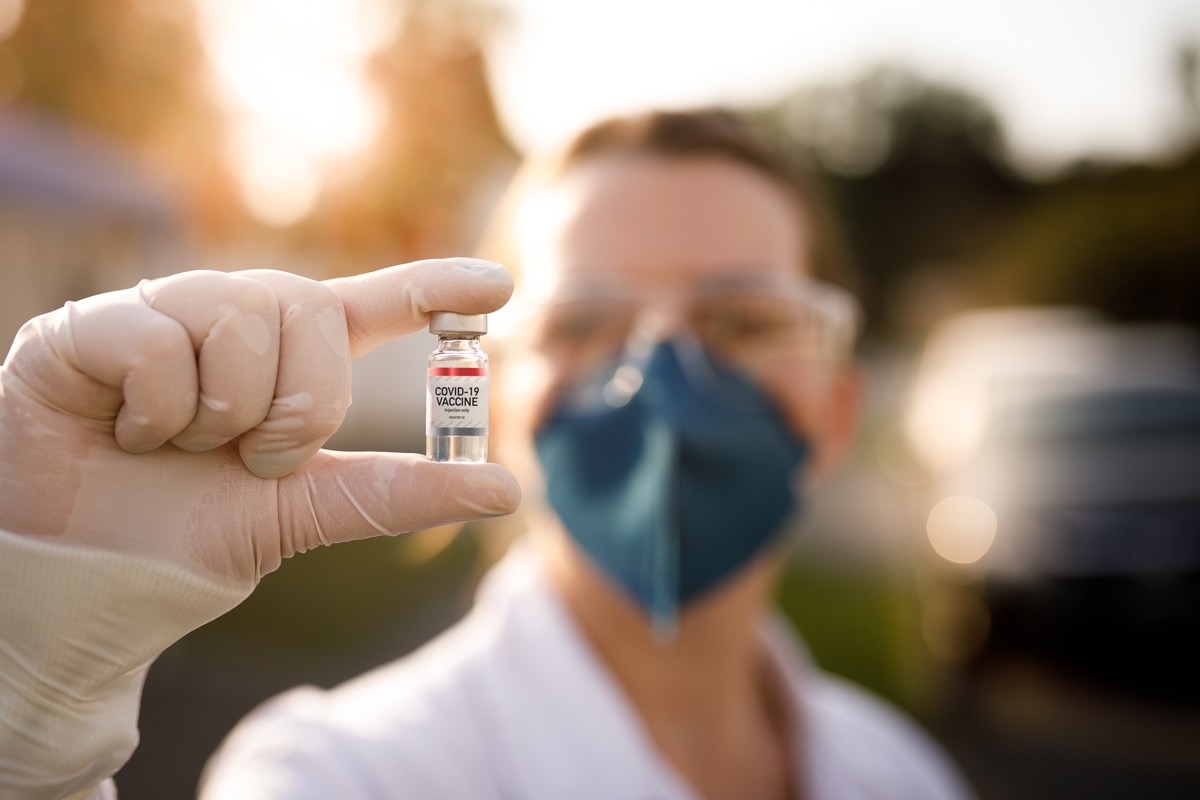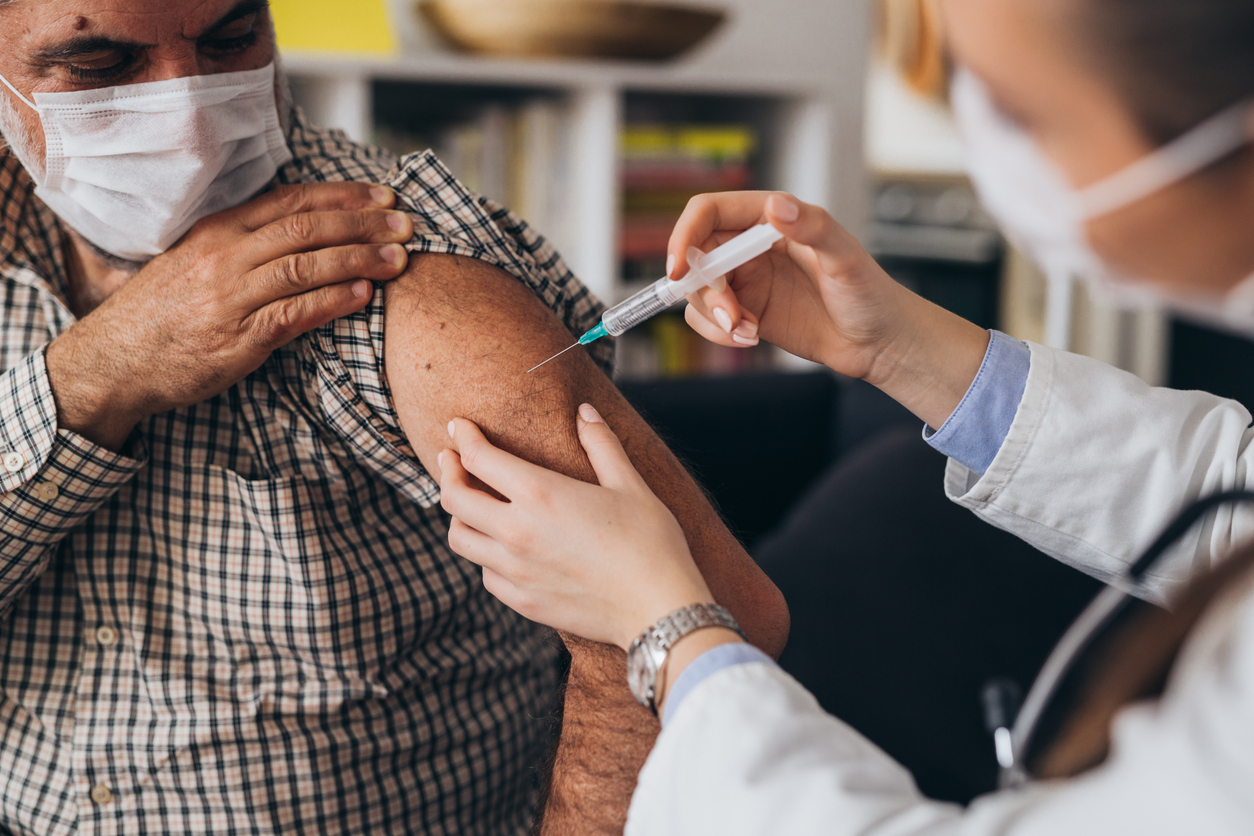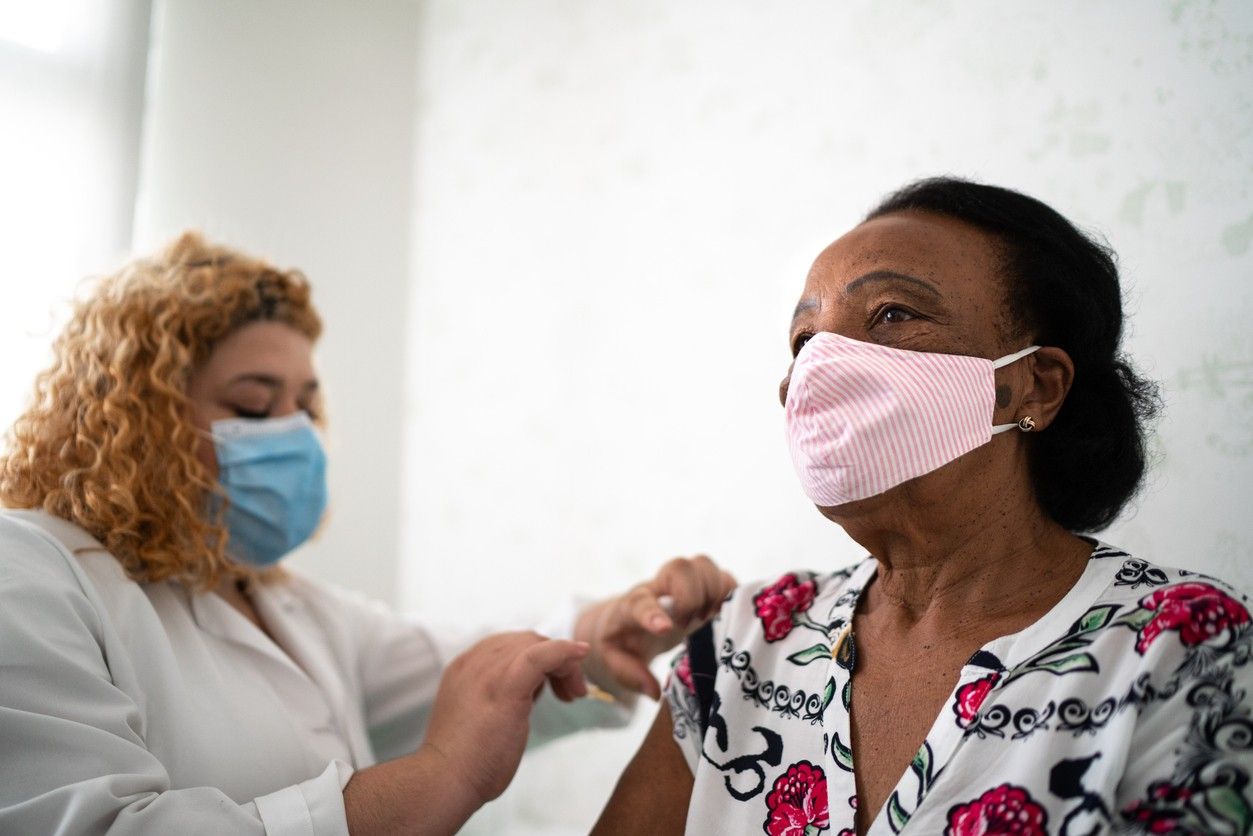The CDC’s update comes on the heels of a severe distribution hiccup—a handful of cities have had to cancel vaccine appointments due to a deficit of doses. The CDC makes an allowance for people’s second dose to be different from their first if absolutely necessary. The agency stipulates that “every effort should be made to determine which vaccine product was received as the first dose, in order to ensure completion of the vaccine series with the same product.” However, “in exceptional situations in which the first-dose vaccine product cannot be determined or is no longer available, any available mRNA COVID-19 vaccine may be administered at a minimum interval of 28 days between doses to complete the mRNA COVID-19 vaccination series.” And for more up-to-date information, sign up for our daily newsletter. Although the CDC now allows for the possibility of getting mismatched vaccines, they don’t suggest doing so unless there is no other option. “The intent is not to suggest people do anything different but provide clinicians with flexibility for exceptional circumstances,” CDC spokesperson Jason McDonald told CNBC. Along with this big change to the CDC’s guidelines, they clarified that the vaccines “are not interchangeable with each other or with other COVID-19 vaccine products.” The agency was careful to note that “the safety and efficacy of a mixed-product series have not been evaluated. Both doses of the series should be completed with the same product.” And for more vaccine news, Dr. Fauci Says He Had These Side Effects From His Second Vaccine Dose. To ensure you receive the same vaccine the second time around, the CDC says vaccinators should provide you with a record card where they note when and which vaccine you got. You should then bring that card with you to your second appointment. To make things even more streamlined, you should be able to make an appointment to get your second dose at the same location before you leave the site. And for more on the evolving vaccine recommendations, The CDC Just Made This Major Update to Its Vaccine Guidelines. The CDC made another significant update on Jan. 21. While it’s recommended you get your second dose of the Pfizer vaccine 21 days after the first dose and the second dose of the Moderna vaccine 28 days after the first, the CDC has now extended that window as a result of distribution difficulties.ae0fcc31ae342fd3a1346ebb1f342fcb “The second dose should be administered as close to the recommended interval as possible,” the CDC notes. However, “if it is not feasible to adhere to the recommended interval, the second dose of Pfizer-BioNTech and Moderna COVID-19 vaccines may be scheduled for administration up to six weeks (42 days) after the first dose.” And for more information about vaccines on the horizon, These Are the Side Effects of the New Johnson & Johnson Vaccine.



